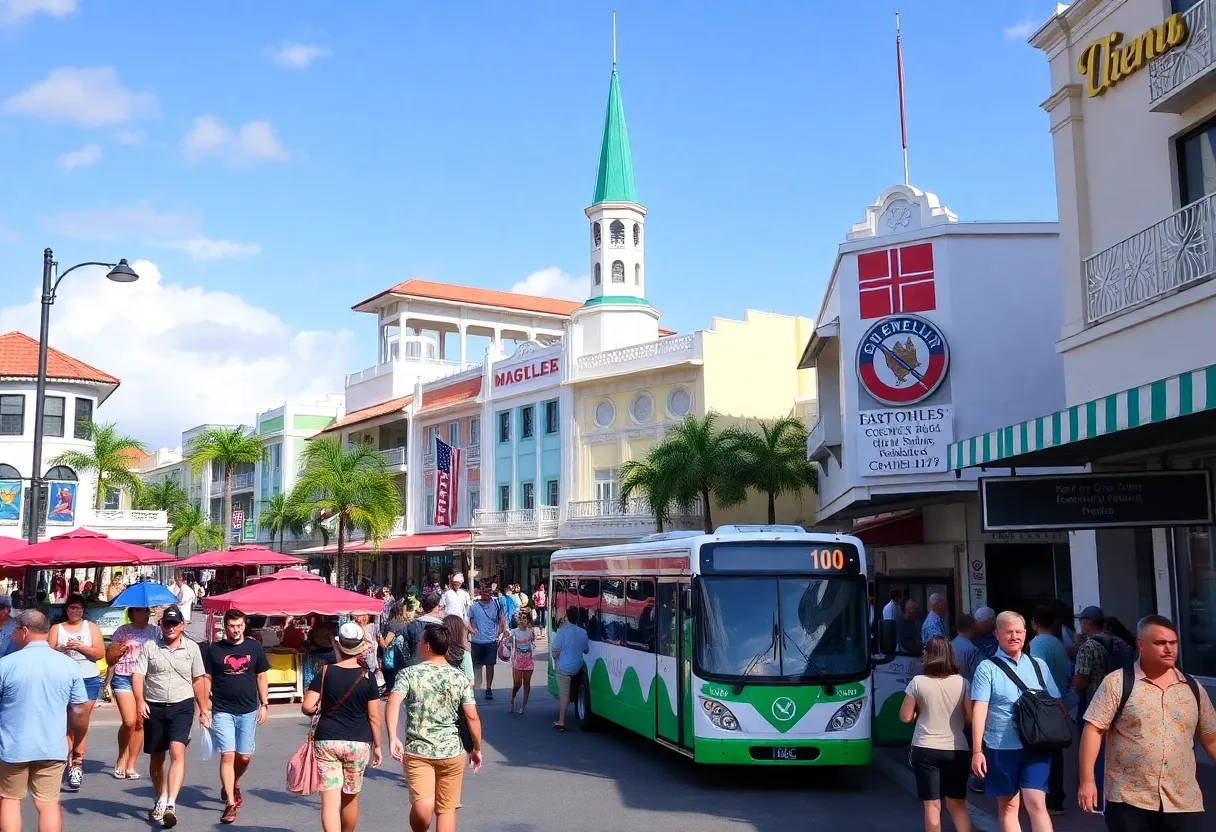News Summary
In a significant legislative setback, GOP lawmakers have withdrawn a proposal to redistribute tourist tax revenue aimed at providing local governments with more spending flexibility. Initially part of a $1.3 billion tax package, the proposal faced opposition from the tourism industry and was removed during budget negotiations. Local leaders have expressed ongoing concerns regarding infrastructure and community needs, emphasizing the disparity in spending flexibility among Florida counties. The political climate remains complex as calls for reform continue to grow.
Orlando, Florida – GOP Lawmakers Withdraw Tourist Tax Reform Proposal
A significant legislative proposal aiming to redistribute hundreds of millions of dollars in tourist tax revenue for local government use was abandoned during the final stages of budget negotiations in Florida. The plan, part of the Republican-led $1.3 billion House tax package (HB 7031), sought to provide local governments with increased flexibility in spending tourist development tax (TDT) revenues but was ultimately removed just before the budget conclusion due to intensive lobbying from the tourism industry.
The proposed changes intended to allow local governments to allocate TDT funds on essential projects such as mass transit and infrastructure improvements. Currently, Florida law mandates that at least 40% of hotel tax revenue be spent on tourism advertising, limiting the potential for addressing pressing local community needs.
This proposal was particularly important for areas such as Central Florida, where local leadership has expressed ongoing concerns regarding traffic congestion and infrastructure challenges brought on by the influx of visitors. Orange County, one of the state’s most heavily visited tourist destinations, generates about $360 million annually from tourist tax revenue, primarily derived from hotel surcharges. Approximately $100 million of this revenue is channeled to Visit Orlando, the regional entity responsible for tourism marketing.
The initiative originated from a proposal by Democratic state Senator Carlos Guillermo Smith, who has previously criticized existing spending requirements as a form of corporate welfare. Smith’s version aimed to cap mandatory spending on tourism advertising at $50 million, redirecting excess funds to help alleviate local infrastructure strains. Additionally, Smith pushed for utilizing TDT funds for transportation projects designed to improve access to key attractions and extend services such as SunRail to Orlando International Airport.
Initially, key provisions from Smith’s proposal found their way into both Republican-led Senate and House tax packages but were subsequently excluded before the conclusion of the legislative session. The eliminated measures included provisions to dissolve tourist development councils and broaden the scope of hotel tax funds usage, which could have enabled potential tax breaks for property owners.
The decision to scrap the proposal faced opposition from various hotel and tourism officials, who labeled the changes as potential job-killers and expressed concerns that they would diminish Florida’s competitiveness as a leading tourist destination.
Despite the setback, local leaders have long advocated for reforms to how TDT funds are allocated, emphasizing the need to tackle community issues such as affordable housing and public transport funding. Recent discussions have shown a trend toward bipartisan support for more flexible use of TDT funds, indicating a potential future for reform efforts aimed at balancing local needs with tourism imperatives.
Interestingly, many other counties across Florida already enjoy broader spending flexibility for tourist development tax funds, leaving Orange County at a comparative disadvantage under the current restrictive rules. The recent legislative session highlighted significant differences in opinion regarding the reallocation of TDT revenues, with certain leaders advocating for continued investment in tourism-centric initiatives over local community concerns.
As the state continues to see high visitor numbers and ongoing pressures on infrastructure, the political climate surrounding TDT reform remains dynamic, underscoring the importance of finding solutions that address both economic and community priorities in Florida’s tourism sector.
Deeper Dive: News & Info About This Topic
HERE Resources
Debate Over Property Tax Elimination in Florida Intensifies
Florida Voters Support Elimination of Business Rent Tax
DeSantis Opposes Sales Tax Cut Proposal in Florida
Orlando Faces Development Clash Over Hotel and Apartment Projects
Orlando Reports Remarkable Financial Surplus and Growth
Orlando’s Economy and Tourism: The Impact of Trump’s Policies by 2025
Additional Resources
- Orlando Sentinel: Orlando Hotel Taxes TDT Plan Dies
- Travel and Tour World: Orlando Florida Hotel Tax Revenue Fuels Tourism
- Sun Sentinel: Plan to Shift Florida Tourist Tax Money Toward Public Projects is Dead
- Florida Politics: Major Hotel Tax Reform Fails to Advance
- Orange Observer: Tourism Tax Collections See Boost in April
- Wikipedia: Tourist Development Tax
- Google Search: Florida tourism tax
- Google Scholar: Florida hotel tax
- Encyclopedia Britannica: Florida tourism tax
- Google News: Florida hotel tax reform

Author: STAFF HERE ORLANDO WRITER
ORLANDO STAFF WRITER The ORLANDO STAFF WRITER represents the experienced team at HEREOrlando.com, your go-to source for actionable local news and information in Orlando, Orange County, and beyond. Specializing in "news you can use," we cover essential topics like product reviews for personal and business needs, local business directories, politics, real estate trends, neighborhood insights, and state news affecting the area—with deep expertise drawn from years of dedicated reporting and strong community input, including local press releases and business updates. We deliver top reporting on high-value events such as Orlando International Fringe Theatre Festival, Megacon Orlando, and Central Florida Fair. Our coverage extends to key organizations like the Orlando Economic Partnership and Hispanic Chamber of Commerce Metro Orlando, plus leading businesses in leisure and hospitality that power the local economy such as Walt Disney World Resort, AdventHealth, and Universal Orlando. As part of the broader HERE network, including HEREJacksonville.com, HEREPetersburg.com, HERETallahassee.com, and HERETampa.com, we provide comprehensive, credible insights into Florida's dynamic landscape.




